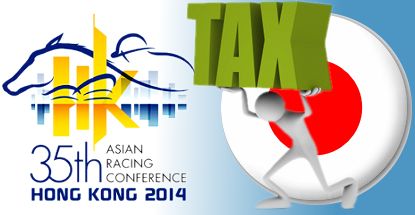 Attendees at the 35th Asian Racing Conference (ARC) in Hong Kong have been told that horseracing needs to adapt some of the broadcast techniques that have made sports – and sports betting – so popular with viewers. Jorg Heise, managing director of German-based Riedel Communications, said the goal was to use technology to enhance racing broadcasts so that “the viewer becomes immersed rather than simply watching.”
Attendees at the 35th Asian Racing Conference (ARC) in Hong Kong have been told that horseracing needs to adapt some of the broadcast techniques that have made sports – and sports betting – so popular with viewers. Jorg Heise, managing director of German-based Riedel Communications, said the goal was to use technology to enhance racing broadcasts so that “the viewer becomes immersed rather than simply watching.”
Heise’s comments came one day after Hong Kong Jockey Club (HKJC) boss Winfried Engelbrecht-Bresges warned that global sports betting turnover was set to eclipse race betting this year. Heise said technology’s capacity to engage viewers offered a possible solution to racing’s decline in that “the commercial logic of live coverage is that attraction and emotion can generate transaction.”
Heise said the goal is to use technology to “create brand new perspectives.” Riedel is incorporating an HD helmet-cam for the HKJC’s broadcast coverage and Fox Sports Australia’s head of programming Gary Burns suggested that the 360° camera shot that football and rugby fans have come to enjoy could also be applied to racing coverage. Burns also noted that sports broadcasters had been putting live microphones on athletes for years and suggested there was nothing preventing race broadcasters from attaching microphones to jockeys.
JAPANESE RACING MEGA-BETTOR BATTLES THE TAXMAN
Racing might also want to help tax authorities figure out how to categorize racing wagers. A mega-bettor in Japan is currently waging a legal fight with the taxman over the ¥7.84b (US $77m) he’d won betting online with the Japan Racing Association (JRA) between 2004 and 2010. The JRA introduced online betting in 2002 and it now accounts for 60% of total racing handle, with some 3m bettors placing wagers online in fiscal 2013.
The Asahi Shimbun reported the bettor had spent ¥7.27b on betting stubs, leaving him with a profit of ¥570m ($5.6m), which he duly declared on his tax return as ‘miscellaneous income.’ He also declared the money he’d spent on losing tickets as business expenses. Not so fast, said the Sapporo Regional Taxation Bureau, which rejected the loss claims and insisted the bettor owed ¥370m in additional tax plus another ¥200m in penalties.
The bettor has gone to Tokyo District Court to overturn the tax bureau’s decision, arguing that (a) the total tax the bureau is seeking represents more than his net winnings and (b) unless regular bettors’ losing wagers are recognized as legitimate expenses, bettors will be taxed “even when they lose money.” Without these changes, the bettor says he’ll own “billions of yen, which I can hardly pay in my entire life.” A similar case was heard last year in Osaka District Court, which ruled that losing wagers were legitimate expenses if bets were made “on a continuous basis.” That ruling is currently under appeal.
